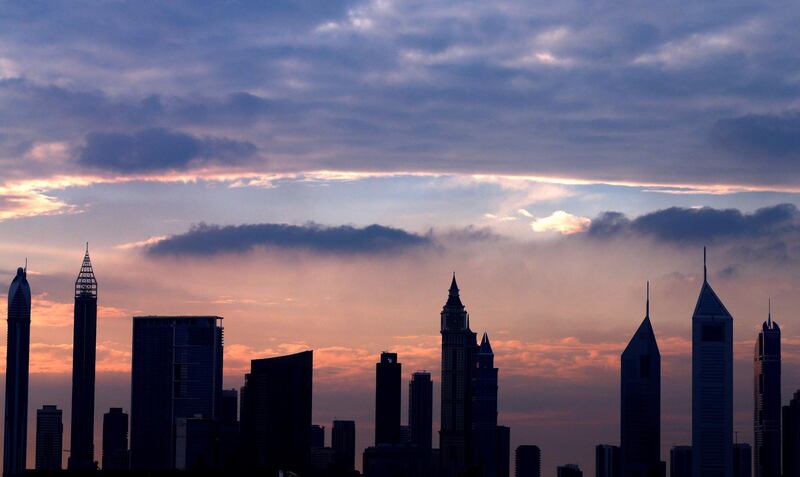The UAE maintained its spot as the most competitive economy in the Middle East and North Africa with high marks on macro-economic stability, infrastructure and technology, according to a new global report.
The country ranked 27th out of 140 countries in the World Economic Forum’s Global Competitiveness Report 2018 edition, the Geneva-based organisation said in a statement on Tuesday. Saudi Arabia ranked second in the region and 39th globally, up two places from its 2017 spot.
"A focus on intra-region connectivity, in combination with improvements in ICT readiness and investment in human capital would improve the region’s capacity to innovate, foster business dynamism and increase its competitiveness performance," the report said.
The UAE has introduced a series of reforms aimed at boosting economic growth. Measures announced over the last few months include waiving corporate fines in Dubai and Abu Dhabi and allowing 100 per cent foreign ownership in companies in selected sectors from the end of this year. The oil-rich country is trying to make it easier to do business, attract more foreign direct investment and create jobs after a three-year drop in crude prices slowed economic growth.
_____________
Read more:
[ UAE tops Arab world in competitiveness ]
[ WEF: UAE ranks No1 in efficiency of government spending ]
_____________
The World Economic Forum’s Global Competitiveness Index 4.0 is a new tool assessing 98 indicators that determine an economy’s level of productivity—widely considered as the most important determinant of long-term growth.
The report is built on 12 main drivers of productivity. These include institutions, infrastructure, technological readiness, macroeconomic context, health, education and skills, labour market, financial system, business dynamism and innovation.
The world's top five most competitive economies are the US, Singapore, Germany, Switzerland and Japan, according to the Index.
The US secured the top spot thanks to its business dynamism, vibrant entrepreneurial culture, labour market and financial system, the report said.
"The United States is the country closest to the frontier of competitiveness," it said.
Burundi, Angola, Haiti, Yemen and Chad ranked the least competitive economies globally, the report showed. Argentina, which is suffering from a financial crisis, is the worst performing G20 economy.
A culture of non-protectionist policies are important for competitiveness at a time of escalating trade tensions and a backlash against globalisation, the report said.
Economies that show openness such as low-tariff and non-tariff barriers and easier hiring of foreign labour tend to perform better in terms of market efficiency, it said.
"Global economic health would be positively impacted by a return to greater openness and integration," it said. "However, it is critical that policies be put in place to improve conditions of those adversely affected by globalisation within countries."
The report found that factors that will drive competitiveness in the future such as idea generation, entrepreneurial culture, openness, and agility, have never been the focus of policy decisions in the past.
"The changing nature of economic competitiveness in a world that is becoming increasingly transformed by new, digital technologies is creating a new set of challenges for governments and businesses, which collectively run the risk of having a negative impact on future growth and productivity," it said.
The WEF said one of its most worrying findings is the relative weakness among global economies in "mastering the innovation process" from idea generation to product commercialisation.
“Only those economies that recognise the importance of the Fourth Industrial Revolution will be able to expand opportunities for their people,” said Klaus Schwab, founder and executive chairman of the World Economic Forum.






